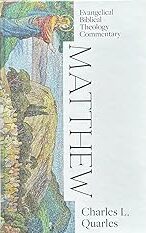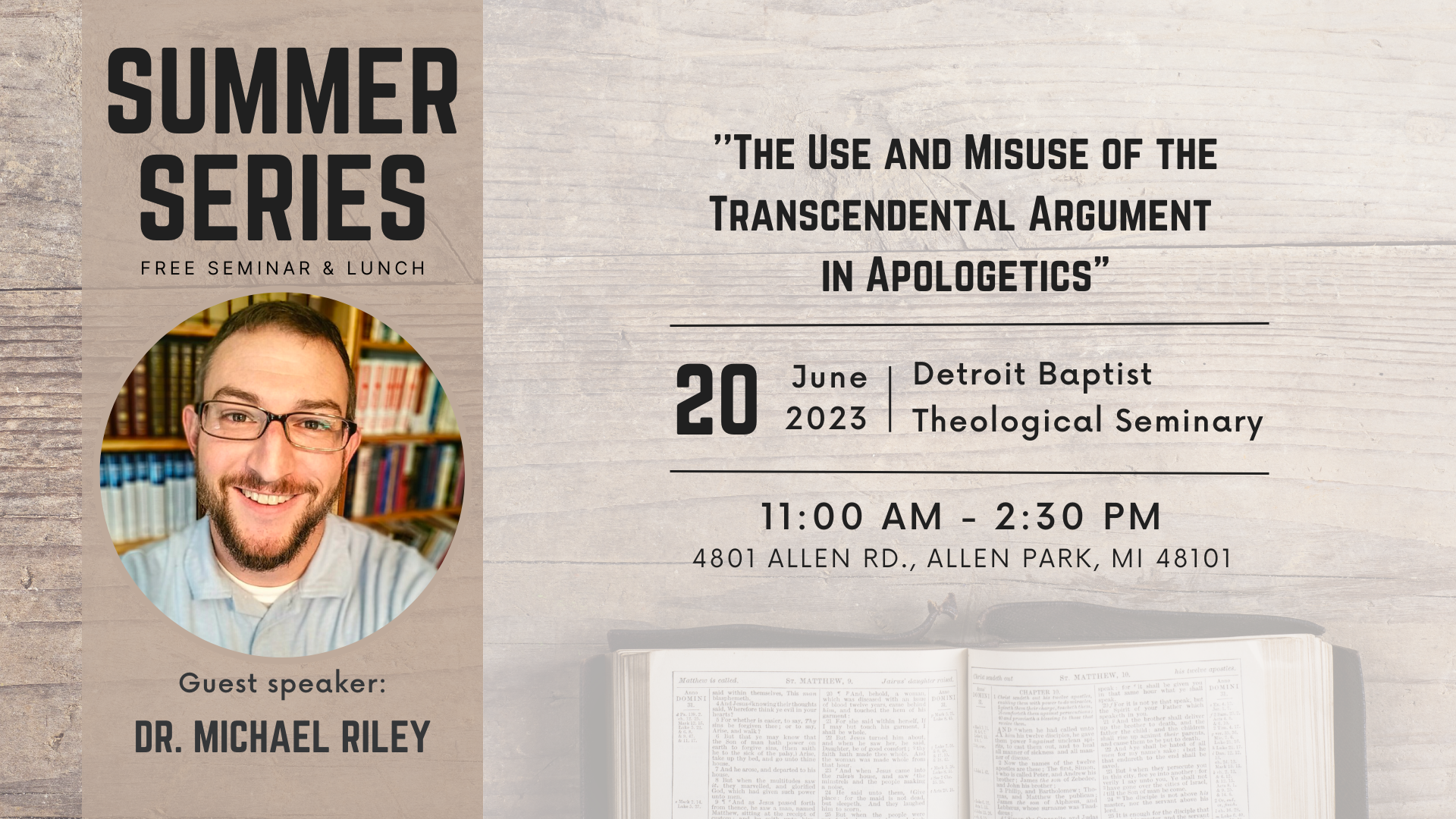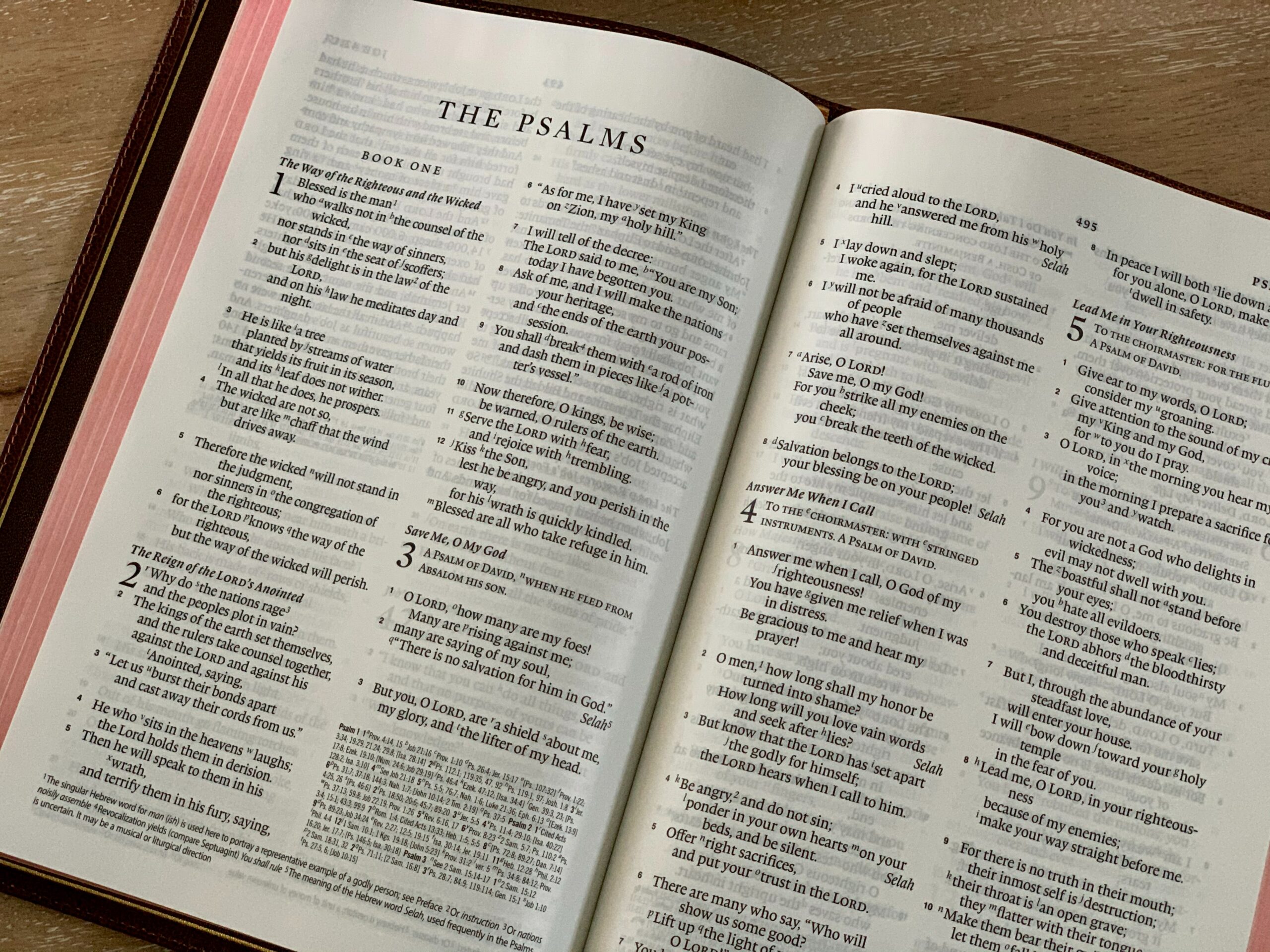It’s common to chide those who emphasize negative issues with an idiom: “You want to be known for what you are for, not for what you are against.” That sentiment is not without merit—if the only thing you do is point out problems but never offer solutions or better...
Mission in the Old Testament: God’s Concern for the Nations (Part 4)
Some time ago I took up the question of whether God intended ancient Israel to serve as a verbal witness proclaiming God’s salvation to the nations. In other words, did Israel have a “missionary mandate” in that she was commissioned directly by God to be a missionary...
When Your Authority Becomes Your Enemy
Post-Christian society is full of deniers—Christians unwilling to cede the loss of Christian influence and often unaware that this loss has irreparably occurred in American culture. These deniers are still agitating to restore Christian privilege: getting the Bible...
When and Where was the Septuagint Written?
The origins of the Septuagint (hereafter, LXX) remain murky despite the evidence of its wide dissemination in the Hellenistic world.[1] Clues to its existence begin to emerge as early as the mid-second century B.C. Historical details, however, concerning the identity,...
Why Does a Gorilla’s Life Matter?
Last Saturday at the Cincinnati Zoo, a gorilla was killed to protect the life of a 4 year old boy who had fallen into the gorilla enclosure. The gorilla, named Harambe, was a member of an endangered species, with less than 175,000 western lowland gorillas worldwide....
Does Matthew 24 Describe the Rapture of the Church? (Part 3)
Read Part 1 of this series here. Read Part 2 here. In the last installment of this series, we examined the argument (a convincing argument, in my opinion) made by John Hart in Evidence for the Rapture that Matthew 24:29–41 was not intended to portray future events in...
Old Age, Death, or Something Else? The Meaning of Ecclesiastes 12:1–7
One of the many interpretive challenges in Ecclesiastes revolves around the meaning of the closing poem in 12:1–7. Interpreters have often read the poem as an allegory of old age. There are a number of problems with this view, however, including inconsistency in the...
Why Would We Give Up Our Hands and Feet?
It is refreshing to read a new commentary that not only says something new (i.e., it is not merely repeating what others have said) but also supports that new statement with good arguments, ideally arguments that build upon what other believers have seen in the text....
Cast Your Bread Upon the Waters (Eccl 11:1): A Call to Bold Action
Recently in my work on the Ecclesiastes commentary, I came across the enigmatic proverb “Cast your bread upon the waters, for after many days you may find it” (Eccl 11:1). This rather puzzling advice has given rise to no fewer than nine interpretations as to its...
Pharisees Don’t Make Good Leaders
That may seem like an odd title, but it captures a leadership principle that is important. I hope it is obvious that Pharisees make for terrible spiritual leaders since their core belief system is contrary to the gospel. People who trust in their own righteousness...
Online vs. In-Person Education: Theological Training Is Supposed to Be Hard
In my previous post considering Dan Wallace’s recent article discussing online vs. in-person education I concluded that, especially regarding theological teaching, in-person education is superior to distance education—all other things being equal. But rarely if ever...
Online vs. In-Person Education: The Superior Value of In-Person Education
A couple of weeks ago Dan Wallace wrote an article questioning whether or not online education is equal in quality to in-person education. (Tim Miller offered some of his thoughts on the article here.) I’d like to consider two of the issues he raises in comparing...
Moralistic Therapeutic Deism Part 6: Heaven, a Better Place, and Life with God
A few months ago there was a controversy from an exchange the Pope had with a young boy whose father had died. The boy wanted to know if his father, who was a good man but an atheist, was in heaven. The pope’s answer emphasized that God would not abandon someone who...
Moralistic Therapeutic Deism Part 4: Happiness and Holiness
I just want to encourage everyone of us to realize when we obey God, we’re not doing it for God – I mean, that’s one way to look at it – we’re doing it for ourselves, because God takes pleasure when we’re happy....So I want you to know this morning: Just do good for...
Imagine There’s…No Hell.
In perhaps John Lennon’s most famous song, “Imagine,” he calls people to envision a world that would be at peace—where “the world will be as one.” He views certain ideas or beliefs as currently standing in the way of this utopia, including countries, religion, and...
The Latin Vulgate as Background to the Version Debate
In light of Bill Combs’s recent posts on the King James Version, I thought it might be helpful to look briefly at another Bible translation that dominated Western Christendom for even longer than the King James. From time to time, KJV-only advocates have argued for...
The Active Obedience of Christ: An Intrusion into Baptist Life?
Occasionally, some well-meaning Baptists have asserted that belief in both the active and passive obedience of Christ as the ground of our justification is something foreign to Baptist life—perhaps something picked up from the Gospel Coalition, the now inactive T4G,...
Does Matthew 24 Describe the Rapture of the Church (Part 5)?
This series has been looking at nine arguments made by John Hart in Evidence for the Rapture for a pre-tribulation rapture in Matthew 24. So far, in Part 1, we have seen that there is a switch at 24:36 from a gathering of believers that comes after signs (vv. 29–31)...
Ministry Advice from a Dead Guy
In recent months, I’ve written about marriage, parenting, and financial advice “from a dead guy” (i.e., John Chrysostom, c. 347–407). In recounting this advice, I’m not suggesting that Chrysostom was always correct or that his advice should necessarily be followed in...
When Society Collapses: Lessons from an Unlikely Prophet
I’ve been teaching through the book of Hosea recently and have been struck by some fascinating parallels to modern American culture. Hosea prophesied in the northern kingdom of Israel around 755–710 B.C., during the final decades of its existence. The northern kingdom...
Does Matthew 24 Describe the Rapture of the Church (Part 2)?
In this series, we are examining nine arguments made by John Hart in his essay, “Jesus and the Rapture: Matthew 24,” which appeared in Evidence for the Rapture: A Biblical Case for Pretribulationism. In the last post (available here), we examined Hart’s first argument...
Summer Series: The Use and Misuse of Transcendental Arguments in Apologetics.
On June 20, DBTS will host the seminar: “The Use and Misuse of Transcendental Arguments in Apologetics.” This seminar will be presented by Dr. Michael Riley, pastor of Calvary Baptist Church in Wakefield, MI. The seminar is built off of Dr. Riley’s Ph.D. dissertation...
Learning from History, not Reacting to It
It’s commonly said that hindsight is 20/20, but that simply isn’t the case. In fairness, most people use it not to claim that their interpretation of past events is perfect, but only that it is easier to see things more clearly after the fact. I agree with that. We...
The Virgin Birth and the Immaculate Conception
In today’s episode of Theologically Driven, Dr. Snoeberger mentions the distinction between the virgin birth of Jesus and the “Immaculate Conception,” a teaching of the Roman Catholic Church about Mary. Dr. Combs, former professor of New Testament at DBTS, wrote a...
What Is a Cult?
This Sunday marks the 40th anniversary of the Jonestown massacre, where over 900 people (members of the Peoples Temple) lost their lives in a group suicide-murder by drinking poisoned punch under the direction of their leader, Jim Jones. Since groups like the Peoples...
Moralistic Therapeutic Deism Part 5: Who’s the Boss?
God is like someone who is always there for you; I don’t know, it’s like God is God. He’s just like somebody that’ll always help you go through whatever you’re going through. When I became a Christian I was just praying, and it always made me feel better....
Moralistic Therapeutic Deism Part 2: God
Most people you know believe in a god—since about 90% of Americans do. References to God are ubiquitous in our culture, but not everyone who talks about “God” is talking about the God of the Bible. Last time I introduced the idea of Moralistic Therapeutic Deism, the...
The Logic of the Pro-Choice Position
Recently I rewatched most of an abortion debate I attended a couple of years ago at Wayne State University here in Detroit. The debate was between Nadine Strossen, professor of Law at New York Law School and former president of ACLU, and Scott Klusendorf, president of...
Can Christianity Be Good If It’s Not True?
In 1768 the French Enlightenment philosopher Voltaire wrote: “If God did not exist, it would be necessary to invent him.” Voltaire was not trying to denigrate Christianity. Rather, he was arguing for the social benefit of belief in God. He thought that belief in God...
Intoxicating Love: The Greatest Guard Rail Against Infidelity
The book of Proverbs has, for me in recent years, become a most faithful friend. It encourages and edifies my soul as I meditate on it. I keep one of those ESV journal books with me as a helpful way to read through it and meditate on it. Considering recent events...
Church Leadership in the First Century
What did church leadership look like in the first century? Below are a few observations. In a passage penned in the mid-first century, James addressed the question of what to do when one is facing serious illness. He wrote, “Is anyone among you sick? Let him call the...
Reasons vs. Rationalizations
I’ve found it helpful to distinguish between reasons and rationalizations. Reasons are facts, arguments, principles, etc., that lead you to a particular conclusion. Reasons are the explanation for why you started holding a position or taking an action. It is what a...
Is Ethics Ever a Matter of “Indifference”?
The term ἀδιάφορα (adiaphora), literally, matters that are to be viewed with indifference or that make no difference, does not appear in the Christian Scriptures and does not feature significantly in Christian Theology until the Reformation era. The term does,...
Financial Advice from a Dead Guy
In recent months, I’ve written about marriage and parenting advice “from a dead guy” (i.e., John Chrysostom, c. 347–407). In this post, I’m going to note a few comments about wealth and poverty from this same church father. Almost every substantial discussion of John...
Marriage Advice from a Dead Guy
A few weeks ago, I wrote a post titled “Parenting Advice from a Dead Guy.” In that post, I introduced Eastern church father John Chrysostom (c. 347–407) and noted some parenting advice found in his book An Address on Vainglory and the Right Way for Parents to Bring up...
The Virgin Birth and the Immaculate Conception
This post originally appeared on December 25, 2013. During Christmas season each year, we read the accounts of Jesus’ birth in the Gospels (Matt 1:18–25; Luke 1:26–38), and we are reminded once more of our Savior’s Virgin Birth. What exactly do we mean by the Virgin...
Wisdom Psalms or a Wisdom Psalter?
Over the past few years, I’ve had the opportunity to study the Psalms for various academic projects. One of the areas of research has been the presence of wisdom elements in the Psalter. This study culminated in the recent publication of an article in Old Testament...
Dealing with Pastoral Sin
An article published recently by the Religion News Service, “Is a Pastor’s Sin a Private Matter?” addresses a matter of great consequence and relevance in the Christian Church. Unfortunately, the article offered an answer that was terribly incomplete. It...
Historic Fundamentalism Protects the Gospel
Phil Newton recently published an article on the 9Marks website entitled, “Fundamentalism May Feel Safe, But It’s Shortsighted.” Newton argues that, after his conversion, the “variety of fundamentalism” in which he found himself “began to squeeze the life and joy out...
After the Exile?
Sometimes we assume we know what a verse means, but once we slow down and read through it carefully, we realize it does not mean what we think it means. It happens to us all. We can receive help in several ways—listening to what others understand a verse to mean...
The Future of Pro-Abortion Arguments
A recent Wired article fascinated me. It began with the line, “One day, human wombs will no longer be necessary for bearing children.” It continued, highlighting the scientific advances that make it quite probable that there will be artificial wombs in factories...
Start with the Mirror
“Why do you see the speck that is in your brother’s eye, but do not notice the log that is in your own eye? Or how can you say to your brother, ‘Let me take the speck out of your eye,’ when there is the log in your own eye? You hypocrite, first take the log out of...
Why Do Christians Believe in the Trinity? Is It Rational?
Christians are people of the book, but the word “Trinity” is not found anywhere in the Bible. So, is the Trinity a biblical doctrine? And if so, is it rational? What Does the Bible Teach? Though the Bible does not contain one verse that sums up the Trinity, it gives...
The Real Story of Chesterton’s Answer to “What Is Wrong” with the World
I’ve always had a soft spot for people who were so insightful and influential that they end up being credited with witty statements they never said. G. K. Chesterton is a great example of that phenomenon. Perhaps the most well-known apocryphal account is that...
John Calvin: Human Life Begins at Conception
A few weeks ago I discussed the pro-life position in the DBTS chapel, including the biblical perspective of when human life begins—at conception. I found it interesting to see John Calvin promoting the view that human life begins at conception in an article he wrote...
Is Christmas Pagan?
It is not unusual to find arguments, both from atheists and Christians, that Christmas was started as an attempt by Christians to try to usurp/replace pagan festivals with a Christian one. Atheists make this argument out of an attempt to mock Christians and undermine...
American Youth’s Default Religion: Moralistic Therapeutic Deism
What is the most common religion among teenagers and young adults today (and probably a large percentage if not a majority of adults)? Moralistic Therapeutic Deism (MTD). This was a suggestion first made by Christian Smith (and Melinda Denton) in 2005 in their book...
The Muslim Worldview
The Detroit 10/40 Conference is being held this Thursday and Friday in Hamtramck, MI. I had a chance during the pre-conference this week to give a talk addressing the importance of recognizing and evaluating worldviews when sharing the gospel and offering some...
What Should We Do with Imprecise Revelation?
A few weeks back I posted a piece on being conservative. In it I suggested that in every sphere of life there are foundational absolutes to be conserved. This is so because God is the immutable source and standard of all that is good and true and beautiful. There is...

































